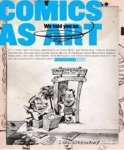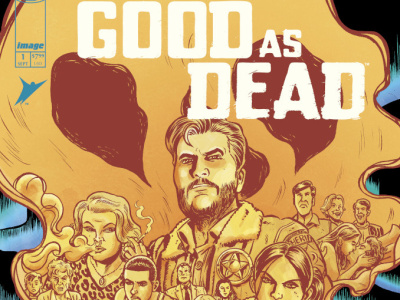
The lawsuit filed by science fiction writer Harlan Ellison against Fantagraphics Books Inc., Gary Groth and Kim Thompson on September 20th of 2006 has been settled and the terms posted online. Ellison, who has a reputation for being litigious and who is described on the dust jacket from one of his own books as 'possibly the most contentious person on Earth,' took exception to several passages in a forthcoming Fantagraphics book, Comics As Art: We Told You So, that were available online and which described events in 1979-80 when Ellison gave an interview to Fantagraphics. That interview later resulted in a lawsuit against Ellison and Fantagraphics by comic book writer Michael Fleischer, who eventually lost his $2,000,000 libel action in 1986. The roots of the current dispute in the Fleischer case is just one of several ironies in this case in which both sides have previously worked together to champion free speech.
As part of the settlement the two offending passages from Comics As Art will be removed from the book prior to publication and from the Fantagraphics' Website. Also, if Fantagraphics decides to reprint The Comic Journal Library: The Writers (published in February of 2006), it will have to remove Mr. Ellison's name from the cover and delete the interview with the Ellison (entitled 'Notes on an Industry in Progress') from any subsequent editions.
Another provision in the agreement forces Fantagraphics to shut down its Fantagraphics Defense Fund, although Fantagraphics will be able to sell artwork already donated to help defray its legal expenses. The settlement stipulates that each side is responsible for its own legal expenses.
Fantagraphics gets to post a 500-word statement on Harlan Ellison's Website where it will remain for 30 days. The purpose of the statement will be to rebut charges by Mr. Ellison that Mr. Groth embezzled funds during the Fleischer case, that Mr. Groth solicited money for the Fantagraphics Defense Fund under false pretenses, and 'that likened Mr. Groth to a child molester.'
Under the terms of the agreement both sides agree to refrain from making ad hominem personal attacks on each other, though they will be free 'at all times to review, criticize, or comment upon one another's work, writings, advocacy, public statements, or other public activities, broadly construed.'







